
February 16, 2024
The action came after 150 students delegated to admin to suspend the program, and in coordination with National JVP.
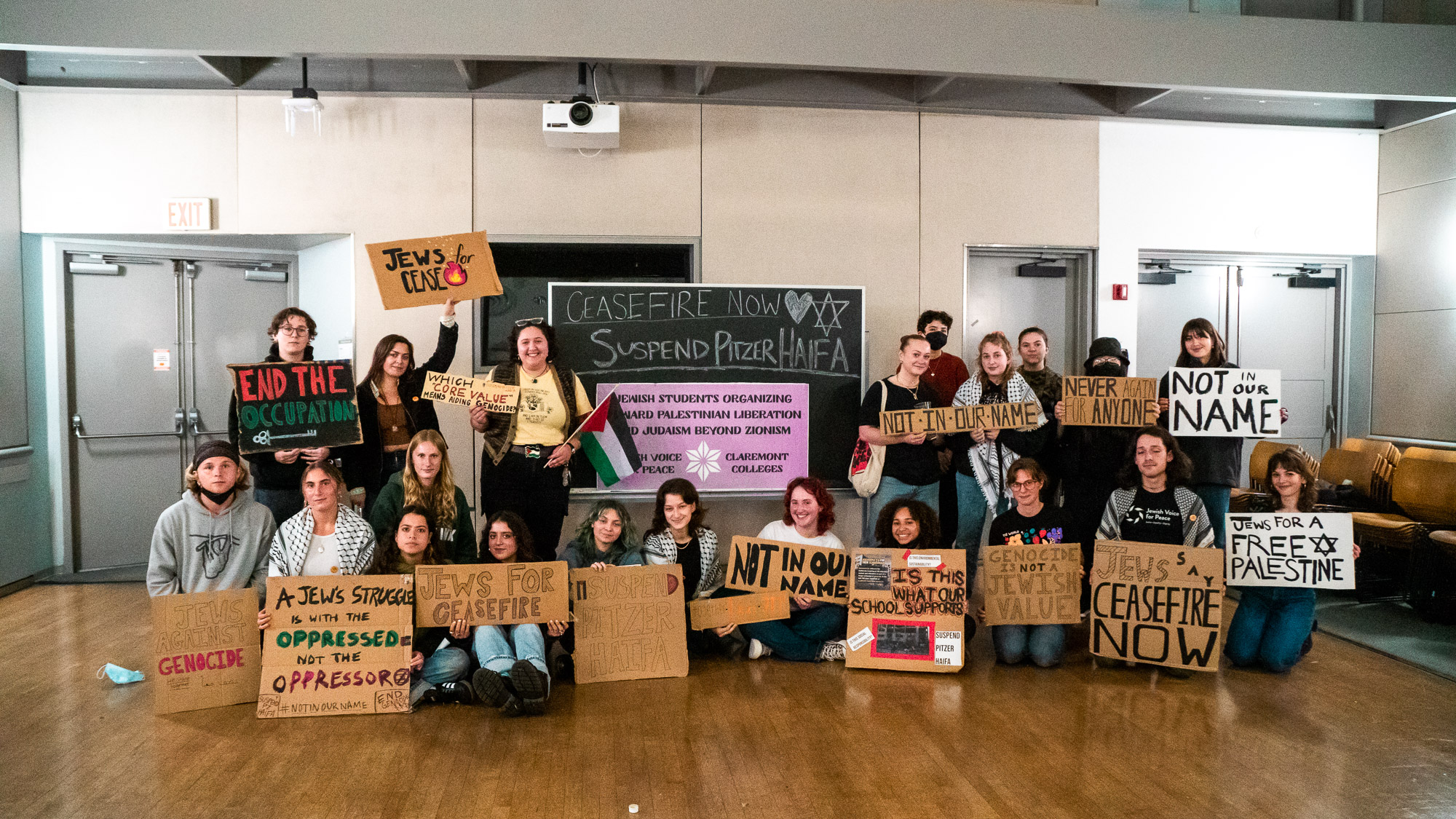
36 students held Shabbat service inside Pitzer’s administration building at 5 p.m. on Friday, Feb. 2, as part of a coordinated Campus Shabbat for Ceasefire Now organized by National Jewish Voice for Peace, and to push Pitzer to suspend its study abroad program with the University of Haifa, the self-proclaimed “backbone of the IDF’s elite training programs.”
Earlier that day, over 150 students delegated to Pitzer administrators demanding an immediate suspension of the study abroad program. On Feb. 4, JVP, SJP and five other student organizations introduced a bill to the Student Senate for the suspension of the program.
Aside from leading prayers chosen to mourn the loss of life in Palestine and to celebrate community, organizers also spoke about the urgency of the campaign at the Shabbat.
“Tonight we join [the Palestinian liberation] struggle by heeding the on-the-ground call for Boycott, Divestment and Sanctions as we voice our unwavering support for the suspension of Pitzer College’s study abroad program with the University of Haifa, located in the city from which over 40,000 Palestinians were displaced during the Nakba,” said Loy Prussack SC ’24.
The University of Haifa also houses Israel’s military colleges, which the university has described as “the backbone of the IDF’s elite training programs.”
“The University of Haifa is complicit in the ongoing occupation through its mistreatment of Palestinian and Arab students, through its Israeli army cadet training programs, and through its very existence on the stolen land upon which it was founded. Pitzer College must heed the Palestinian call for BDS and suspend the study abroad program,” shared Prussack.
The IDF has killed more than 28,730 Gazans, including 12,150 children, since the beginning of its indiscriminate bombardment of Gaza on Oct. 7.
“There have been efforts in the past to list out the sick, list out the dead before the prayer. And I think it is horrifying and meaningful to realize in this moment that that’s not possible. There are too many, and I think that’s something we have to sit with as we’re committing ourselves to this work and committing ourselves to feeling the emotion that comes with it,” said JVP organizer Ezra Levinson PZ ‘27, who also contributes to Undercurrents.
Organizers also pushed back on the weaponization of antisemitism as a reason to carry out violence against Palestinians, emphasizing that the Israeli state is not a source of safety for Jewish students in JVP.
“It is our duty as Jews to speak out against the continuous violence and displacement perpetrated by the Israeli government, supposedly in our name as Jews,” shared Prussack. “Tonight, surrounded by other Jews and allies with a team of our peers taking charge of keeping us safe, we know it is not Israel that protects us. Our safety comes from community and solidarity, from an understanding that we must stand for the liberation of everyone from the river to the sea in Palestine
The organizers of the shabbat cited Miriam Grossman, an anti-Zionist rabbi who has openly called for a ceasefire. Miriam Grossman considers herself “‘part of a fight for the sanctity of all human life that includes Jewish life and makes no exception for Palestinian life’”.
“Rabbi Miriam Grossman writes, ‘During kiddush, we often say l’chaim — to life — in a joyful way. Let’s not do that today. But if saying it is your practice, I invite you to say it in a more somber way. May the Source of Life bring protection for Palestinian lives, bring just peace to the Holy Land, and bring comfort to all of those in mourning,’” Prussack said at the shabbat.
The organizers provided challah, wine, grapes, cookies and non-alcoholic grape juice for attendants, as these are traditional food and drink during Shabbat.
“‘Bread is a symbol of sustenance and abundance. As we pray over the challah tonight, we remember that so many Palestinians are without bread — because there was no electricity to bake with. Because the bakery was bombed. Because, as we as Jews know so well, there is no time to bake bread while fleeing oppressive violence’” quoted Prussack.
Levinson spoke about the importance of accessing not just grief and anger, but also connection, in the collective struggle for Palestinian liberation.
“I think it’s important to be able to look at [Gaza] and to feel pain, to feel anger, but also to take time for other emotions, to feel connection, to feel grounded in our shared humanity and our shared safety, our collective safety. I think that when we ground ourselves in all of that, when we have a response that comes from our care and our joy and our power and our anger and our fear, that can really tie us together. And I think that’s how we move forward.”

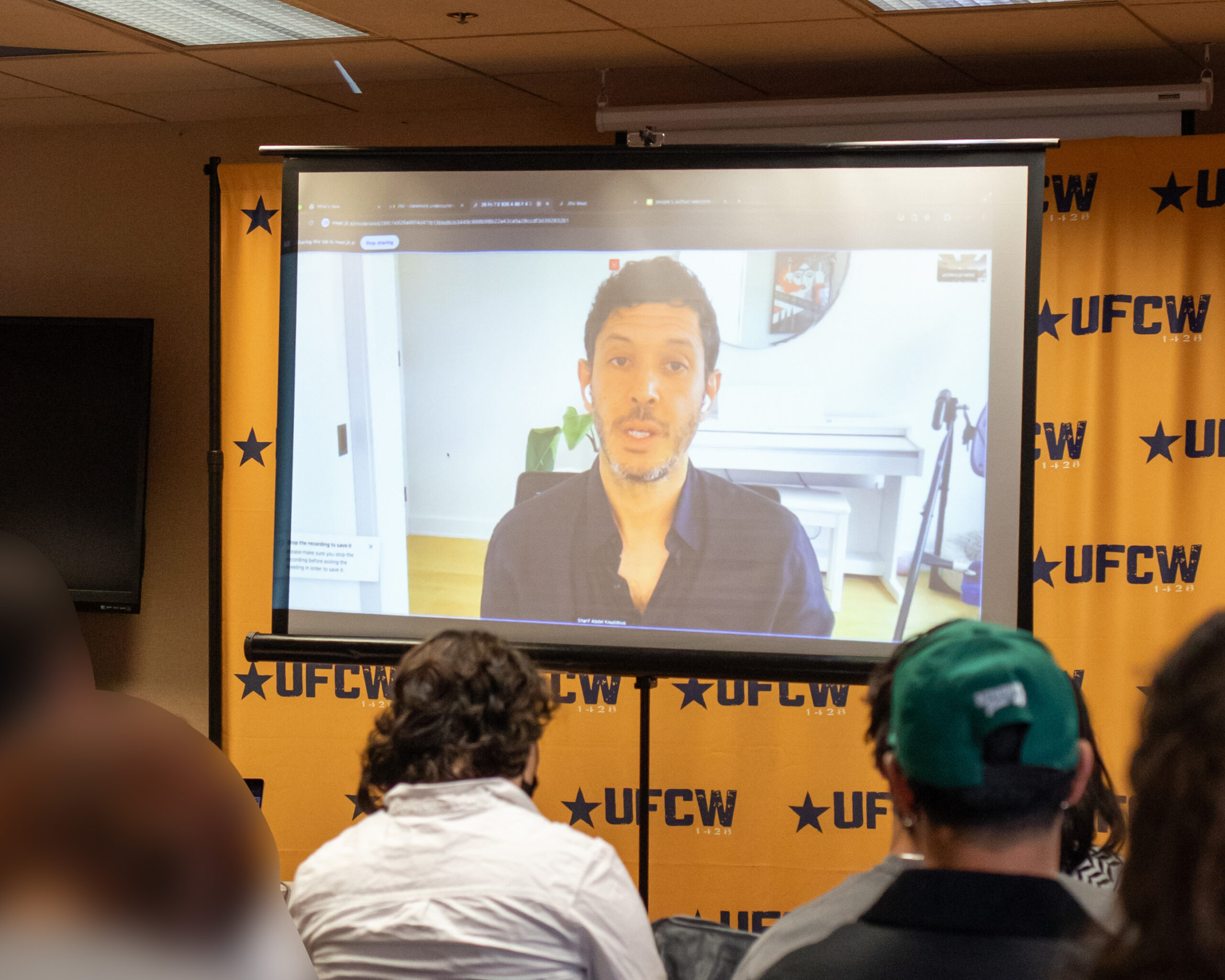
Commentary
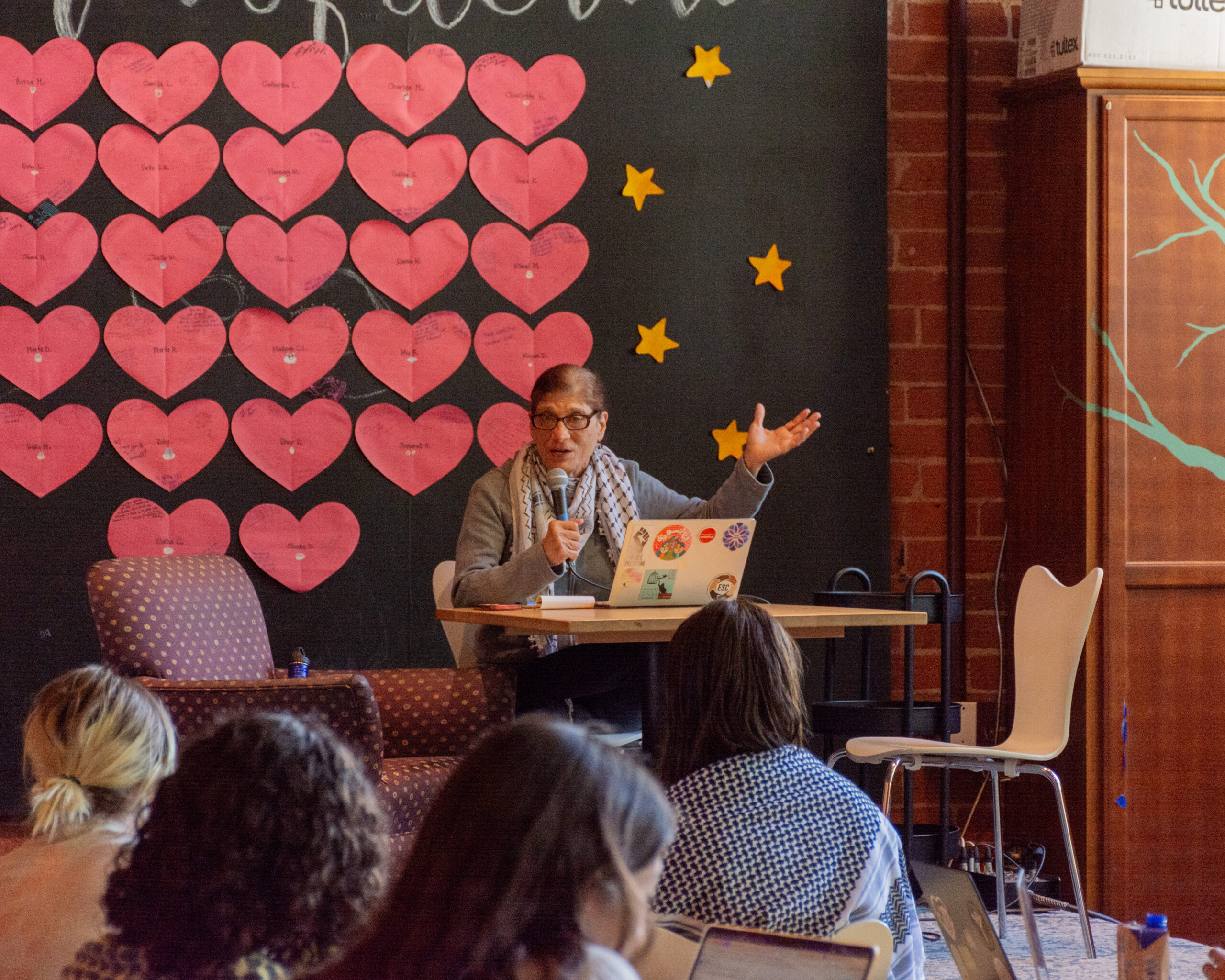
Palestine
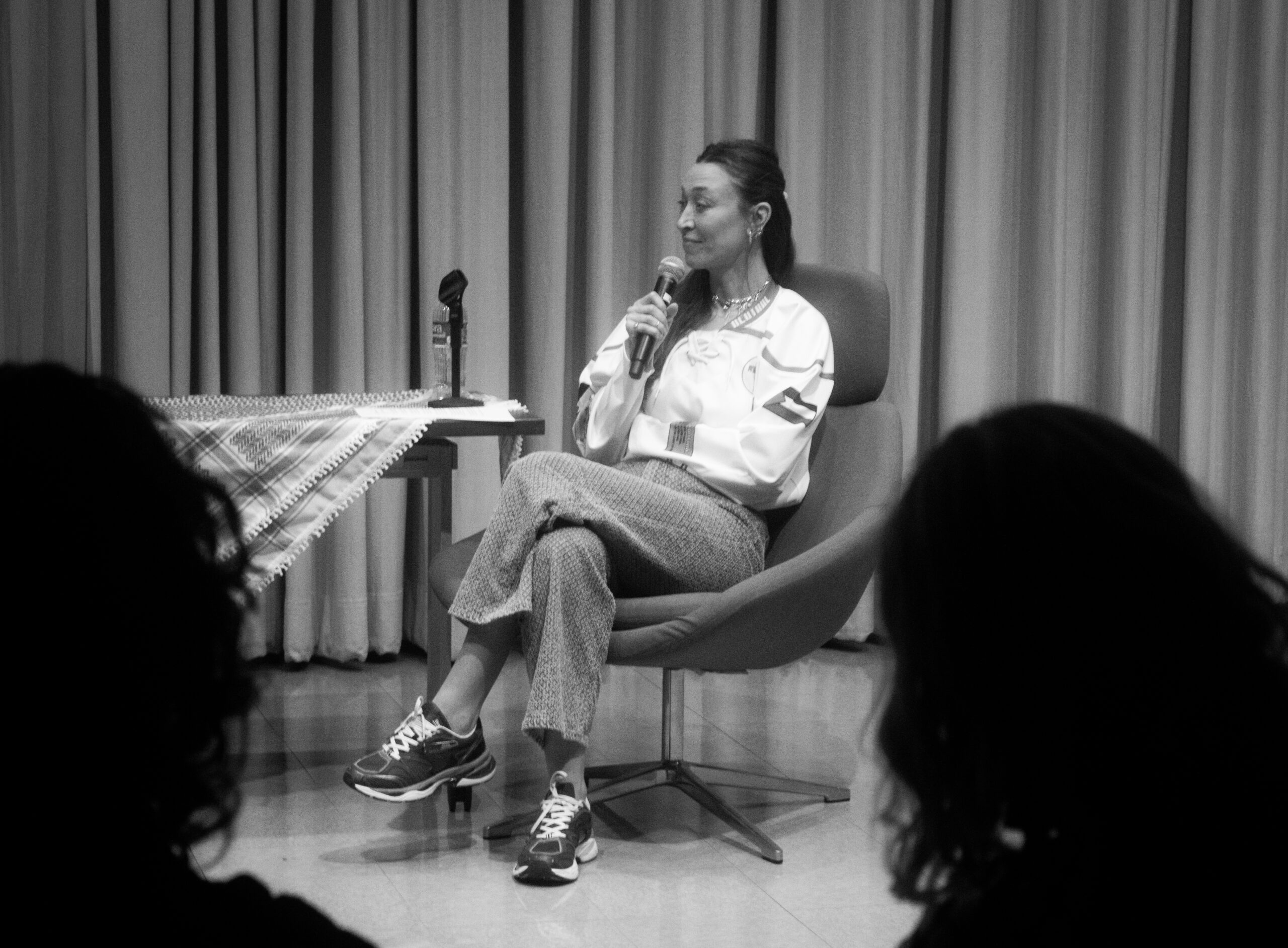
Palestine

Undercurrents reports on labor, Palestine liberation, prison abolition and other community organizing at and around the Claremont Colleges.
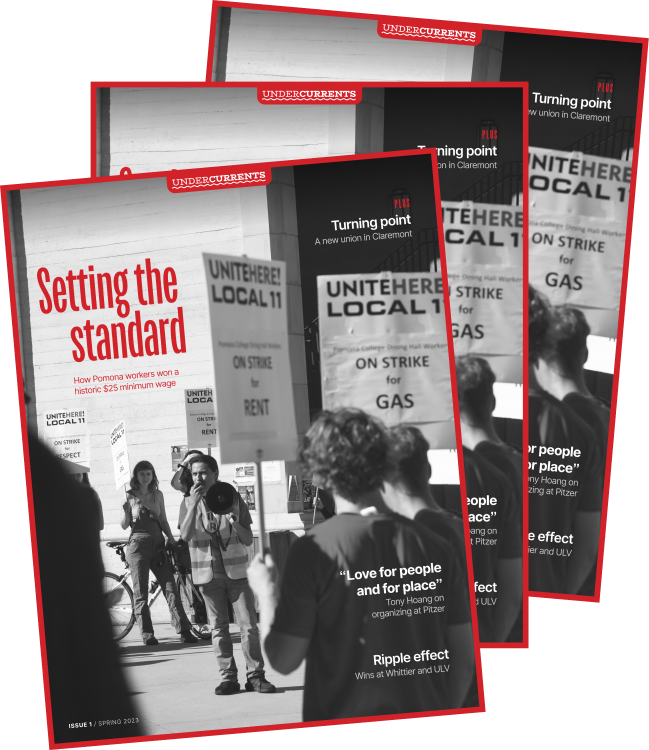
Issue 1 / Spring 2023
Setting the Standard
How Pomona workers won a historic $25 minimum wage; a new union in Claremont; Tony Hoang on organizing
Read issue 1